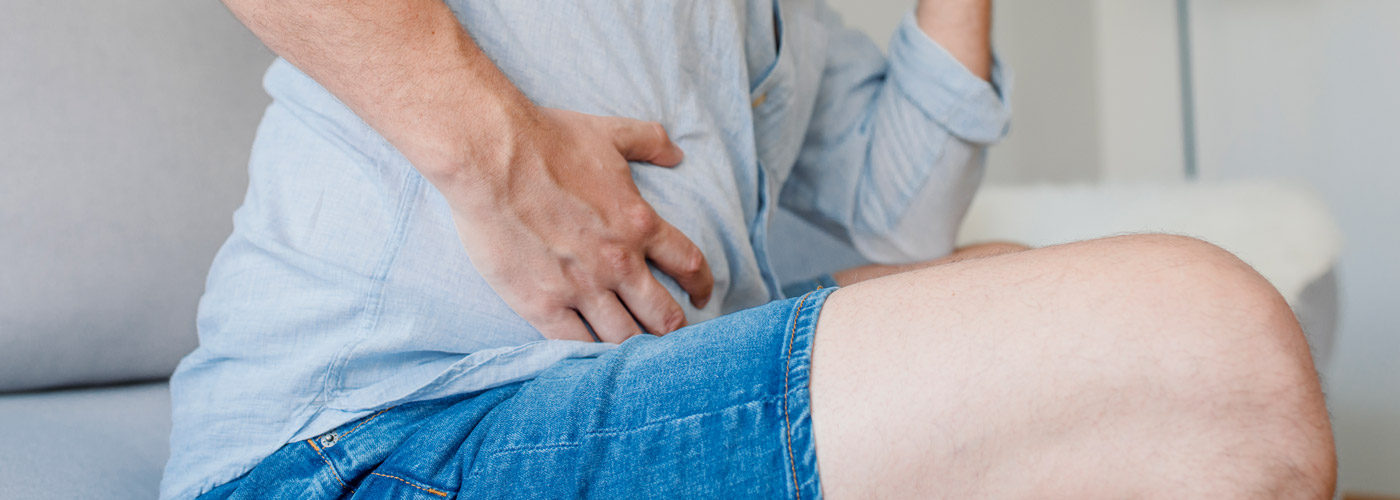Most people are lucky enough to live their entire lives without giving their gallbladder a second thought. Unbeknownst to many pregnant women, they face an increased risk of gallbladder problems thanks to the increased estrogen levels that accompany pregnancy.
The liver produces a liquid called bile, which consists of cholesterol, bilirubin, and bile salts. When working properly, the gallbladder stores and then releases bile into the small intestine so that it can help the body digest dietary fat. If the elements that make up bile are not balanced (such as when elevated estrogen causes increased cholesterol), gallstones can result.

Gallstones are stone-like deposits that form in the pear-shaped gallbladder or the bile duct. They often cause pain when they keep bile from flowing properly. Gallstones can exist indefinitely without causing any symptoms, but when they grow in size or number, problems can quickly crop up. During a “gallbladder attack,” you might experience one or more of these symptoms, particularly after eating a high-fat meal:
- Severe pain in the upper right or middle part of the abdomen
- Pain between the shoulder blades or on the right shoulder
- Nausea
- Fever or chills
- Jaundiced appearance (yellowing of the skin or whites of the eyes)
- Light stools
If symptoms improve within an hour or two, make sure to inform your doctor about what happened soon. You are likely to have another gallbladder attack once you’ve had one. If the symptoms do not go away in a couple of hours, you should seek emergency medical attention because this could indicate a serious gallbladder problem like cholecystitis (gallbladder inflammation due to bile buildup).
When a pregnant woman’s gallstones are on the milder end of the spectrum and do not cause intense symptoms, doctors typically decide to keep an eye on the gallbladder and wait, ideally until after the baby is born. However, a cholecystectomy (gallbladder removal) may be advisable when there’s inflammation or infection. Depending on the individual situation, the surgery can be done either robotically, laparoscopically, or open.
While gallstones during pregnancy can’t be entirely prevented, diet tweaks including the following can help lower the risk of developing gallstones:
- Stick with a healthy diet that’s low in saturated fat
- Enjoy lots of fruits, vegetables, and healthy omega-3 fats
- Increase the fiber content of your meals
- Save refined carbohydrates and sugar for special occasions
Also, diabetes and weight gain can increase the risk of gallstones, so carefully managing both under a doctor’s care can help minimize the likelihood of developing gallstones during pregnancy.
Postpartum hormone changes and rapid weight loss can lead to gallstone development. It’s important to shed the pregnancy weight slowly, especially within the first two to four months after delivery.
Knowing the signs of gallbladder problems can help new and expectant moms recognize when they need to seek medical attention. Dr. John Uecker has extensive experience diagnosing gallbladder problems and performing gallbladder removal surgery. Set up an appointment today to learn how he can help you.
*SOURCE: http://pregnancyandbaby.com
_________________________________________________________________
John M Uecker, M.D. has been in practice in Austin since 2003. His practice focuses on the surgical treatment of hernias, gallstones, GERD, hiatal hernias and thyroid, parathyroid and adrenal tumors. He started and leads the robotic surgery program at Dell Seton Medical Center. Dr. Uecker is the Division Chief of minimally invasive surgery and an Associate Professor at the University of Texas Dell Medical School where he enjoys teaching medical students and residents.

